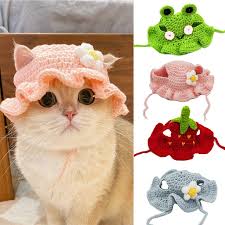Kidney Care Dog Food: Keeping Your Canine Healthy
Just like humans, dogs can also suffer from kidney issues that require special care and attention. Kidneys play a vital role in filtering waste and toxins from the body, so it’s crucial to provide proper nutrition to support kidney health.
Understanding Kidney Disease in Dogs
Kidney disease in dogs can be caused by various factors such as aging, genetics, infections, or even certain medications. Symptoms of kidney disease may include increased thirst, frequent urination, lethargy, and weight loss. If you suspect your dog has kidney issues, it’s essential to consult with a veterinarian for proper diagnosis and treatment.
The Role of Kidney Care Dog Food
Kidney care dog food is specially formulated to support kidney function and overall health in dogs with renal issues. These specialized diets typically have reduced levels of protein, phosphorus, and sodium to ease the workload on the kidneys while still providing essential nutrients.
Benefits of Kidney Care Dog Food
- Supports Kidney Function: The balanced nutrition in kidney care dog food helps maintain optimal kidney health.
- Reduces Strain on Kidneys: Lower levels of certain nutrients lessen the burden on the kidneys.
- Promotes Overall Well-being: By providing necessary nutrients in appropriate amounts, these foods help keep your dog healthy and active.
Consult Your Veterinarian
Before making any changes to your dog’s diet, including switching to kidney care dog food, it’s crucial to consult with your veterinarian. They can recommend the most suitable diet based on your dog’s specific health needs and ensure a smooth transition to the new food.
By choosing the right nutrition for your furry friend, you can help manage their kidney issues and improve their quality of life. Remember that proper care and attention are key to keeping your canine companion healthy and happy!
6 Essential Tips for Choosing the Right Kidney Care Dog Food
- Choose a dog food that is specially formulated for kidney care.
- Look for dog foods with lower phosphorus content to support kidney health.
- Consider feeding your dog smaller, more frequent meals to reduce the workload on the kidneys.
- Ensure your dog has access to fresh water at all times to maintain hydration and kidney function.
- Consult with your veterinarian for recommendations on the best kidney care dog food for your pet’s specific needs.
- Monitor your dog’s weight and overall health regularly while on a kidney care diet.
Choose a dog food that is specially formulated for kidney care.
When it comes to caring for your dog’s kidneys, selecting a dog food that is specially formulated for kidney care is crucial. These specialized diets are designed to support kidney function and promote overall health in dogs with renal issues. By choosing a dog food tailored to kidney care, you can ensure that your furry companion receives the appropriate nutrients while reducing the strain on their kidneys. Consult with your veterinarian to find the best kidney care dog food that meets your dog’s specific needs and helps them lead a healthy and happy life.
Look for dog foods with lower phosphorus content to support kidney health.
When selecting kidney care dog food for your canine companion, it is essential to prioritize options with lower phosphorus content. Phosphorus plays a significant role in kidney health, and reducing its levels in your dog’s diet can help lessen the strain on their kidneys. By choosing dog foods with lower phosphorus content, you are taking a proactive step in supporting your dog’s kidney function and overall well-being. Consult with your veterinarian to find the most suitable food that meets your dog’s specific dietary requirements for optimal kidney care.
Consider feeding your dog smaller, more frequent meals to reduce the workload on the kidneys.
Feeding your dog smaller, more frequent meals can be a beneficial strategy in kidney care. By dividing your dog’s daily food intake into multiple smaller portions, you can help reduce the workload on the kidneys. This approach allows for better digestion and absorption of nutrients, putting less strain on the renal system. Additionally, smaller meals throughout the day can help maintain stable blood sugar levels and provide a more consistent source of energy for your furry companion. Consulting with your veterinarian about implementing this feeding schedule can contribute to supporting your dog’s kidney health and overall well-being.
Ensure your dog has access to fresh water at all times to maintain hydration and kidney function.
Ensuring your dog has access to fresh water at all times is crucial for maintaining hydration and supporting kidney function. Adequate hydration is essential for proper kidney function, as it helps the kidneys filter waste and toxins effectively. By providing your canine companion with a constant supply of fresh water, you can help prevent dehydration and promote overall kidney health. Remember to regularly refill their water bowl and monitor their water intake to ensure they stay well-hydrated. This simple yet vital step plays a significant role in keeping your dog healthy and happy.
Consult with your veterinarian for recommendations on the best kidney care dog food for your pet’s specific needs.
When it comes to ensuring the best kidney care for your beloved pet, consulting with your veterinarian is essential. Your vet can provide valuable recommendations on the most suitable kidney care dog food tailored to your pet’s specific health requirements. By seeking professional guidance, you can rest assured that you are making informed choices that will support your dog’s kidney function and overall well-being effectively. Trusting in your veterinarian’s expertise is a crucial step in providing optimal care for your furry companion.
Monitor your dog’s weight and overall health regularly while on a kidney care diet.
It is essential to monitor your dog’s weight and overall health regularly while they are on a kidney care diet. Keeping track of your dog’s weight can help ensure that they are maintaining a healthy body condition and receiving the appropriate amount of nutrients. Additionally, monitoring their overall health allows you to detect any changes or potential issues early on, enabling prompt intervention and adjustments to their diet if necessary. Regular check-ups with your veterinarian can provide valuable insights into your dog’s progress and well-being while on a kidney care diet.




